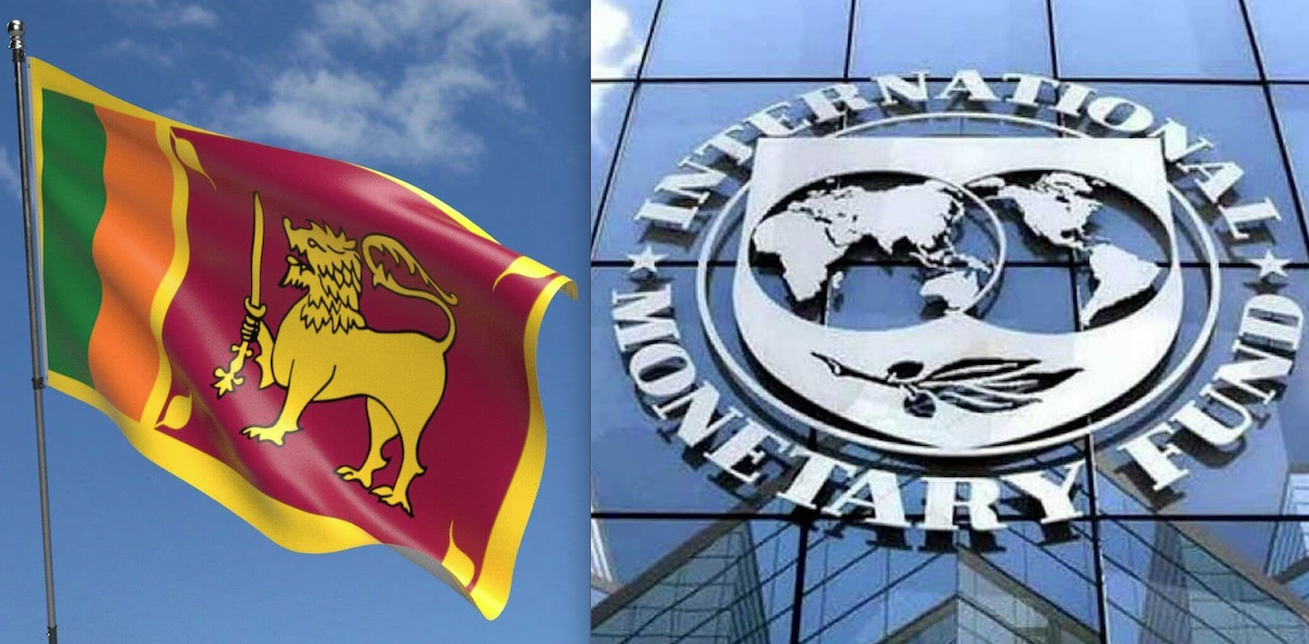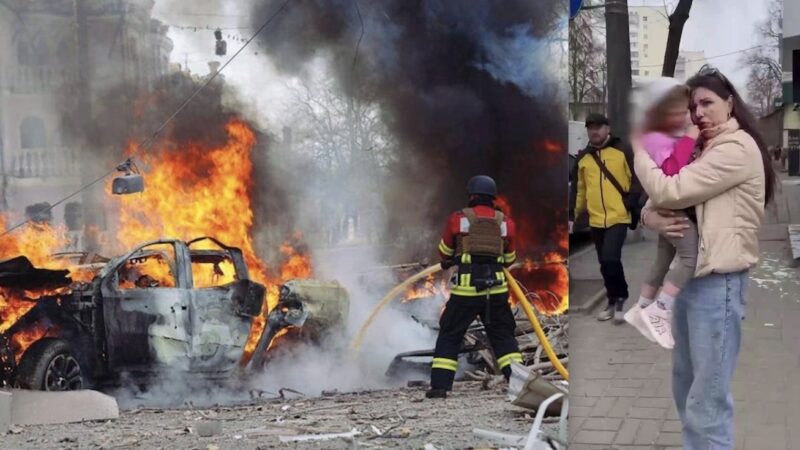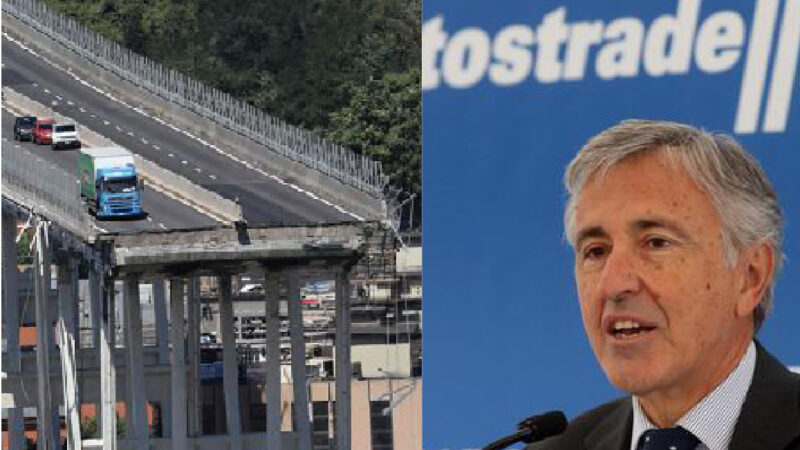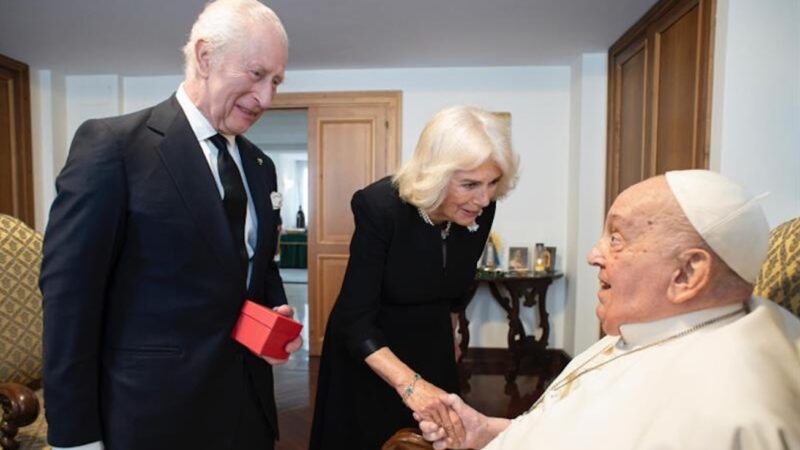Sri Lanka Debt Justice Collective sends Alarming Open Letter to IMF on DDO

by Darini Rajasingham-Senanayake
Dr. Darini Rajasingham-Senanayake, is a Social and Medical Anthropologist, based in Colombo, Sri Lanka. All links to Gospa News articles have been added aftermath.
An International Monetary Fund (IMF), team was in Sri Lanka from September 14-to 27 to discuss economic and financial policies and conduct the First Review of the Extended Fund Facility program comprised of a loan of USD 2.9 billion to be disbursed over four years. The lender of last resorts was unable to reach a staff-level agreement with Sri Lanka in its first review under a $2.9bn bailout package.
While the IMF team was in country national economic experts raised concerns about the legitimacy of the IMF engaging in Domestic Debt Restructuring, amid questions about transparency, Data accuracy, veracity, and authenticity in the IMF’s debt restructuring operations.
A group of academics and activists identifying themselves as part of Sri Lankan debt justice collective also wrote an open letter to the International Monetary Fund (IMF), regarding the country’s Domestic Debt Optimisation (DDO) program.
This was due to the failure to adequately release the relevant Debt Data and computation of both the IMF’s Internal and External Debt restructuring operations in a context of concerns about local-global networks of corruption and bondscams at the Central Bank of Sri Lanka.
Concerns about the Debt Data pertain to the IMF engaging in mandate creep and non-US dollar denominated domestic debt restructuring and converting Rupee denominated debt into US Dollars with the USD Debt Numbers being inflated and conflated with local rupee denominated debt to present a dire country-level scenario as a precursor for an IMF Firesale of Sri Lanka’s strategic assets (land, labour outmigration and brain drain, telecom, energy and transport infrastructure), in a context of escalating Global Geopolitical tensions and Cold War.
The Environmental Cost of the US Superpower’s Economic, Hybrid War Games in Indian Ocean
Questions about the IMF’s conflation and inflation of domestic and internal debt data and currency conversion have been compounded by questions regarding Sri Lanka’s debt data Security, accuracy, veracity, and authenticity in the context of escalating cyber and information wars. There have been significant cyber and data wipes and hack of the Sri Lanka Government Cloud Data Storage system and encryption of Government emails in recent times.
Increasingly, in age of Artificial Intelligence (AI), Deep Fakes and data scraping to game numbers and narratives, international bankers and experts now recommend obtaining printed bank statements or hard copies.
DIGITAL COLONIALISM – 1. Covid Endgame: Cyberwar Simulacra in an Upside down World
While, the Government of Singapore refuses to even disclose how much its reserves are, it is a matter of concern that various numbers games are being played with Sri Lanka’s Debt Data by a gravy train of accounting and legal companies such as Lazard, Clifford and Change, experts and Economic Hit Men, amid concerns about the accuracy, veracity, authenticity, and transparency of the IMF Debt Restructuring in a context of escalating Cold War and Geopolitical Economic turbulence in the Indian Ocean region where Sri Lanka is in the cross hairs of great power rivalry.
Darini Rajasingham-Senanayake
Dr. Darini Rajasingham-Senanayake, is a Social and Medical Anthropologist, based in Colombo, Sri Lanka. All links to Gospa News articles have been added aftermath.
ALL ARTICLES BY DARINI RAJASINGHAM-SENANAYAKE
GOSPA NEWS – ECONOMICS – GEOPOLITICS
Following are excerpts from the Debt Justice Collective’s Open Letter:
All links to Gospa News articles have been added aftermath for its relevance to the topics covered
We are part of the Sri Lankan debt justice collective that has been working with Debt Justice UK to campaign for meaningful debt relief for Sri Lanka.
In the wake of the IMF agreement with the Sri Lankan Government in March 2023, a smaller group of us wrote to the IMF delegation on 5 March 2023, setting forth a series of questions about how the IMF intended to ensure a sustainable, equitable and just plan (1). Since then we have been alarmed to observe that our words have largely fallen on deaf ears.
Given the IMF mission’s current visit to Sri Lanka, a larger group of us, who work on Sri Lanka or are from the country, take this opportunity to reiterate our concerns and urge the IMF to meaningfully engage with all stakeholders.
For brevity, we set out our key concerns below. They revolve around particularly, the domestic debt optimisation (DDO) process. Many of our demands and concerns echo those raised by Sri Lankan trade unions, and civil society actors in their recent discussions with the Governor of the Central Bank of Sri Lanka (CBSL).
CEDSL Group of Academics and Activists Demands Debt Cancellation to Save Sri Lanka
By way of context, the IMF staff report considered by the Executive Board issued on March 23, 2023, notes the following key priorities in the implementation of the Extended Facility Fund (EFF) program:
- Strengthening the social safety net
- Revenue-based fiscal consolidation
- Enhancing growth by reducing corruption vulnerabilities
- Rebuilding external buffers by improving international reserves
- Strengthening institutions and governance
The staff report specifically states that an important priority of the program will be, ‘to protect the vulnerable from the impact of crisis and policy adjustments’ (p32, para. 46).
From “Donor Darling” to Outcast: Sri Lanka Ignores BRICS amid Cold War and Climate Hypocrisy
With this in mind, we have the following questions for the IMF delegation to address, seek clarification from the Sri Lankan Government and ensure accountability:
- A) How does the Government’s proposal to seek DDO by placing the exclusive burden on the Employees’ Trust Fund (ETF) and superannuation funds, particularly, the Employees’ Provident Fund (EPF), reconcile with the IMF’s commitment to prioritise the protection of Sri Lanka’s vulnerable and social security systems? The EPF, a majority of which earn less than Rs 100,000 per annum (circa $3,100.00 per annum), is the only social security fund for the working poor in Sri Lanka, many of who keep afloat the country’s key foreign exchange earning sectors (apparel and tea, for instance)
- B) Aside from questions of socio-economic justice, the CBSL Governor, as a custodian of the EPF, is unable by law to deplete its resources. How does the current proposal therefore satisfy the IMF’s commitment to prioritising good governance and accountability?
- C) Trade unions as well as Members of Parliament, (MP) such as the chairman of the Committee of Public Finance, Dr. Harsha de Silva, have spoken in Parliament about the opaque nature of the DDO process. The Government and the CBSL have made little effort to engage the members of the EPF and seek their opinion about subjecting their pension fund to DDO. Key information on EPF and DDO has also been withheld from Parliament, preventing the MPs from making an informed decision on DDO. Is the IMF not concerned that this undermines the commitment to transparency, accountability and good governance identified as priorities in the IMF staff report?
- D) The IMF staff report is explicit about the need to reduce corruption vulnerabilities. Trade union leaders and civil society activists who held a meeting with the CBSL Governor on 5 September, 2023, outlined several avenues of revenue generation to address debt sustainability issues. These include addressing the issue of illicit capital flows and tax evasion. The Global Financial Integrity (GFI) estimated that Sri Lanka has lost $40 billion as a result of illicit capital flows. The Auditor General of Sri Lanka revealed that a massive volume of tax revenue worth Rs.904 billion was lost due to tax evasion. We believe the ability of a government to secure foreign exchange earned through international trade and amass tax revenue is a cornerstone in ensuring fiscal stability and financial sustainability. In this regard, both illicit flows and tax evasion that the trade unions underscored are related to corruption around the government and corporate sector business corruption that remain unaddressed in the country. How does the Governance Diagnostic proposed by the IMF, factor in these issues? What steps is the IMF taking to ensure that the Government of Sri Lanka (GoSL) strengthens and addresses corruption vulnerabilities?
- E) Is the IMF satisfied that the GoSL, and the CBSL are ensuring transparency of communication around the EFF program? While press releases and briefs in English are made available, what steps are being taken to share information in the local languages – Sinhala and Tamil? This is essential to ensure that the population of Sri Lanka is aware and able to make informed decisions in relation to programs of action being implemented in their name.
- F) The IMF should also note that the debt negotiation process is being steered by an unelected head of state who has been postponing public elections, closing down avenues for redress via the judicial system and cracking down on dissent. Parallel to the burgeoning burden of debt restructuring placed on the people, the President and the Government are proposing to implement new draconian anti-terror laws designed to further constrain democratic rights to free speech, free assembly and public dissent. Is the IMF not concerned that this contradicts its commitment to strengthening institutions, transparency, accountability and good governance in Sri Lanka?
We raise the above concerns for your attention because – as the IMF itself notes – the impact of the debt crisis on low-income groups in Sri Lanka is severe. The UNDP’s (2023) multi-dimensional vulnerability index estimates that more than half (55.7%) of Sri Lanka’s population faces multiple vulnerabilities. This is a staggering 12.3 million people in a country of 22.2 million people. We will not recount the World Bank›s estimates on increasing poverty or UNICEF›s concerns about spiralling malnutrition.
However, we bring these to the attention of the IMF mission as both the GoSL and the CBSL Governor appear to be seeking debt sustainability, where the interests of private creditors (external and internal) are given precedence over the people of Sri Lanka. This is especially ironic given that in 2013, Ranil Wickremesinghe raised the point in Parliament that the bulk of Sri Lanka’s external debt is odious, and should be cancelled without oppressing the poorest communities of Sri Lanka.
With this in mind, we look forward to hearing how the IMF will ensure the delivery of its own publicly expressed commitments to ensuring equitable, sustainable, transparent and accountable debt relief to Sri Lanka. Yours sincerely,
Signatories:
1. Anne M. Blackburn, Prof Cornell University, USA
2. Arjun Guneratne, Prof Macalester College, USA
3. Harshana Rambukwella, Prof NYU, Abu Dhabi
4. Jeanne Marecek, Senior Research Professor and William Kenan Prof Emerita, Swathmore College, USA
5. Howard Nicholas, Prof Emeritus, Erasmus University of Rotterdam
6. Kanchana N Ruwanpura, Prof University of Gothenburg, Sweden
7. Kanishka Jayasuriya, Prof Murdoch University, Australia
8. Kiran K Grewal, Prof Goldsmiths, University of London, UK
9. Ruvani Ranasinha, Prof King’s College London, UK
10. Vasuki Nesiah, Prof NYU, USA
11.Dr Amali Wedagedara, Independent Post-Doctoral Researcher, Sri Lanka
12. Dr Eva Ambos, Research Fellow, University of Tübingen, Germany
13. Charith Gunawardena, Ex-Elected Councilor, London Borough of Enfield, U.K.
14. Heshani Sothiraj Eddleston, Filmmaker, Centre for Pesticide Prevention, University of Edinburgh, U.K.
15. Dr Kaushalya Ariyarathne, University of Colombo, Sri Lanka
16.Dr Mario Gomez, Executive Director, International Centre for Ethnic Studies, Sri Lanka
17. Dr Mythri Jegathesan, Associate Prof Santa Clara University, USA
18. Dr Narayani Sritharan, Post-Doctoral Fellow – AidData, William & Mary, USA
19. Dr Nicola Perera, University of Colombo, Sri Lanka
20. Dr Nimanthi Rajasingham-Perera, Associate Prof Colgate University, USA
21. Dr Sharika Thiranagama, Associate Prof Stanford University, USA
22. Dr Shyamala Gomez, Executive Director, Centre for Equality and Justice, Sri Lanka
23. Dr Shyamain Wickramasinghe, Research Fellow, Sussex University, U.K.
24. Dr .Darini Rajasingham-Senanayake, Independent Researcher, Sri Lanka
(1) https://www.ft.lk/opinion/Open-letter-to-IMF-and-IMF-mission-in-to-Sri-Lanka/14-747321



